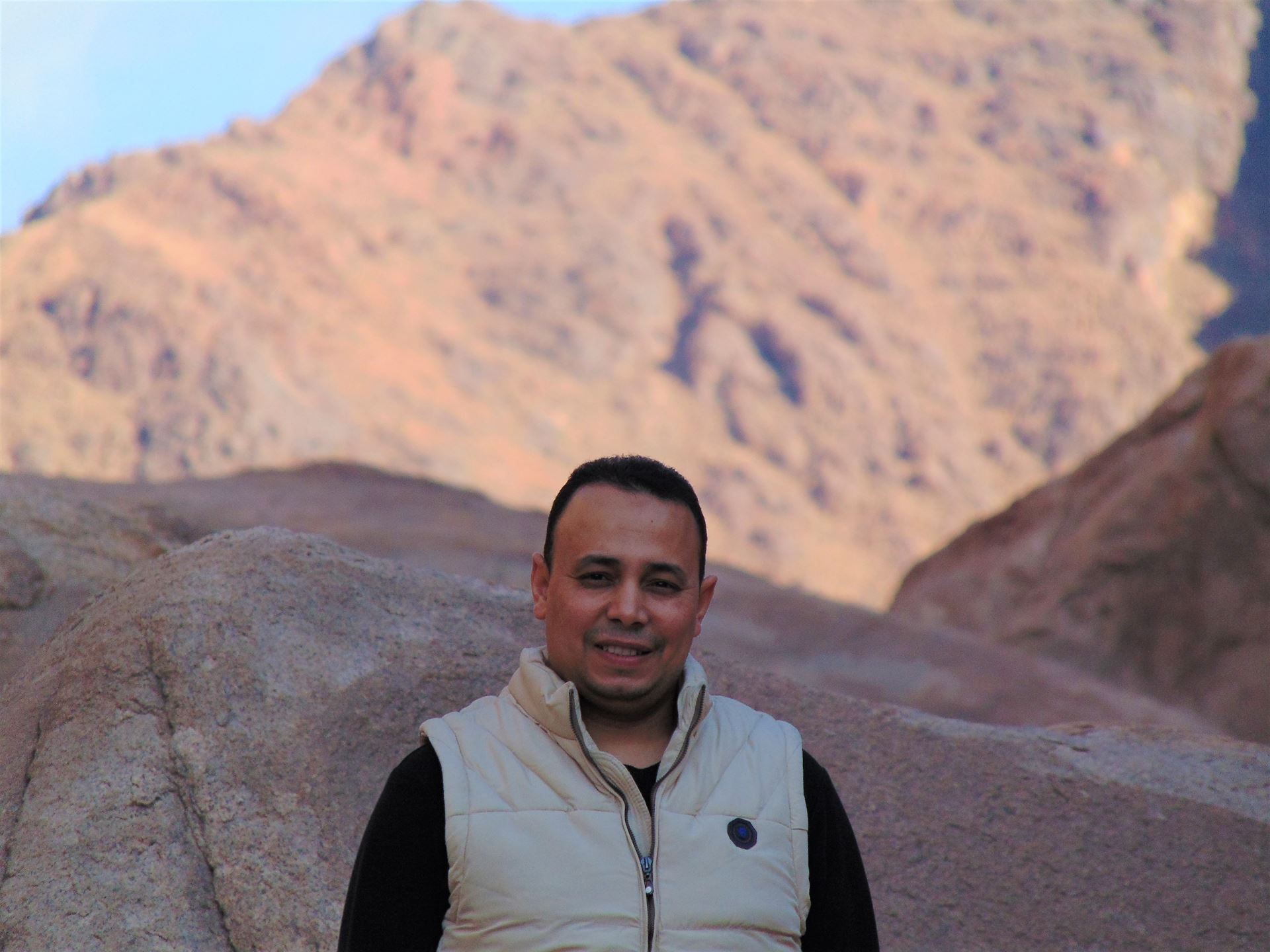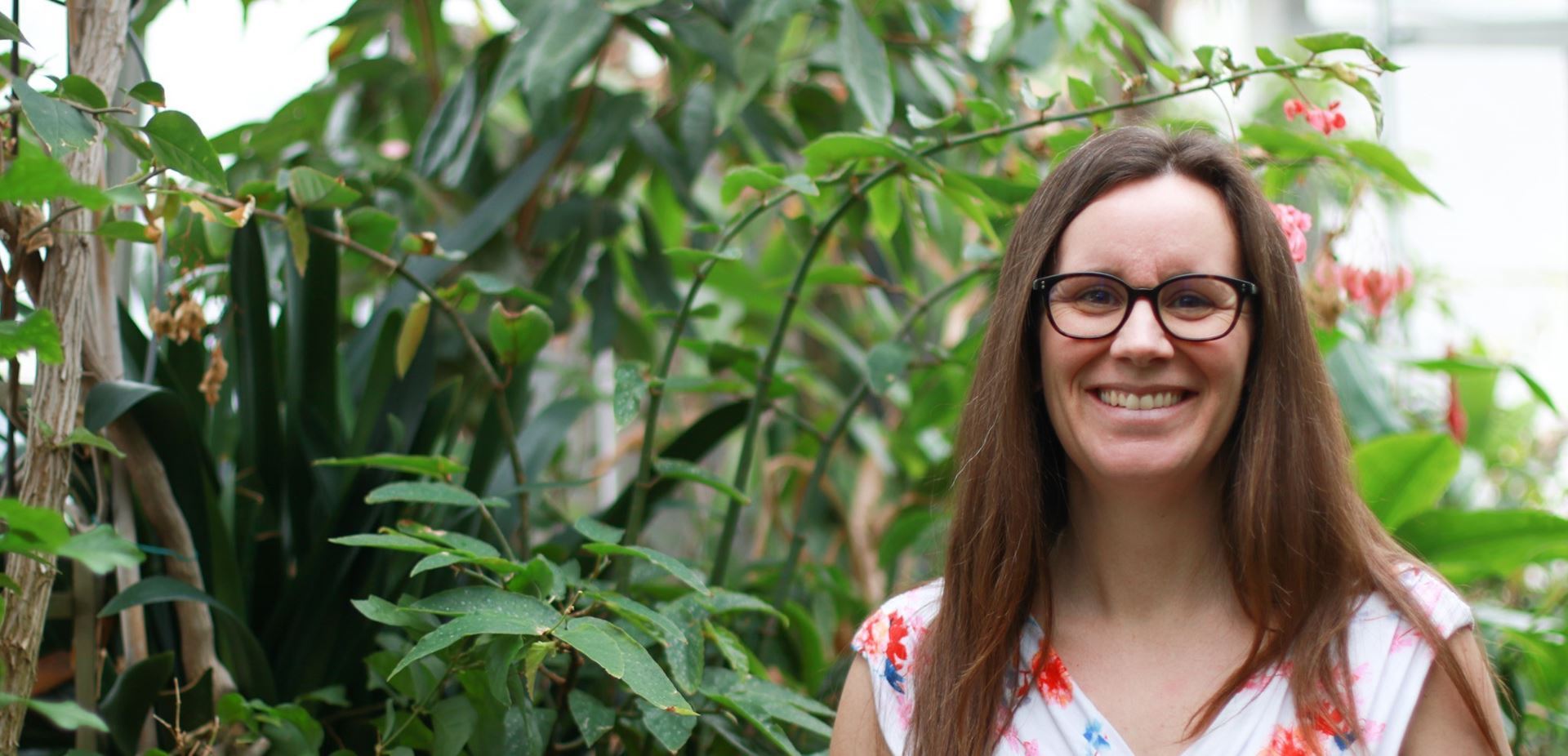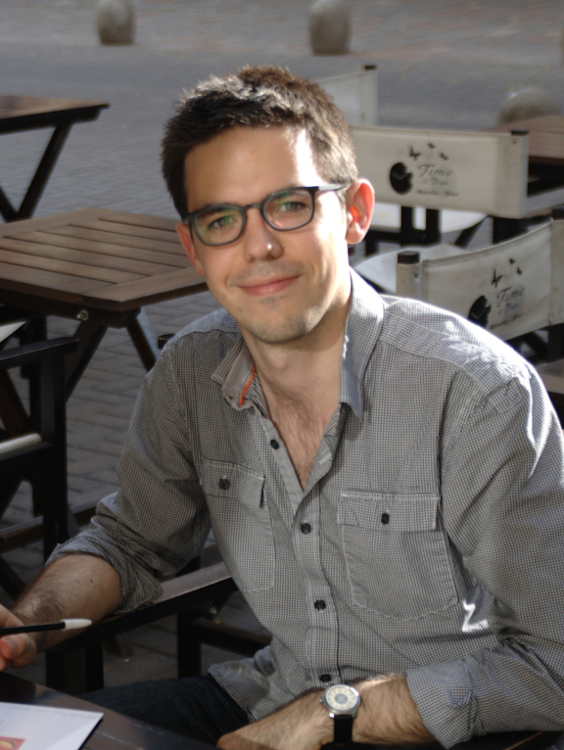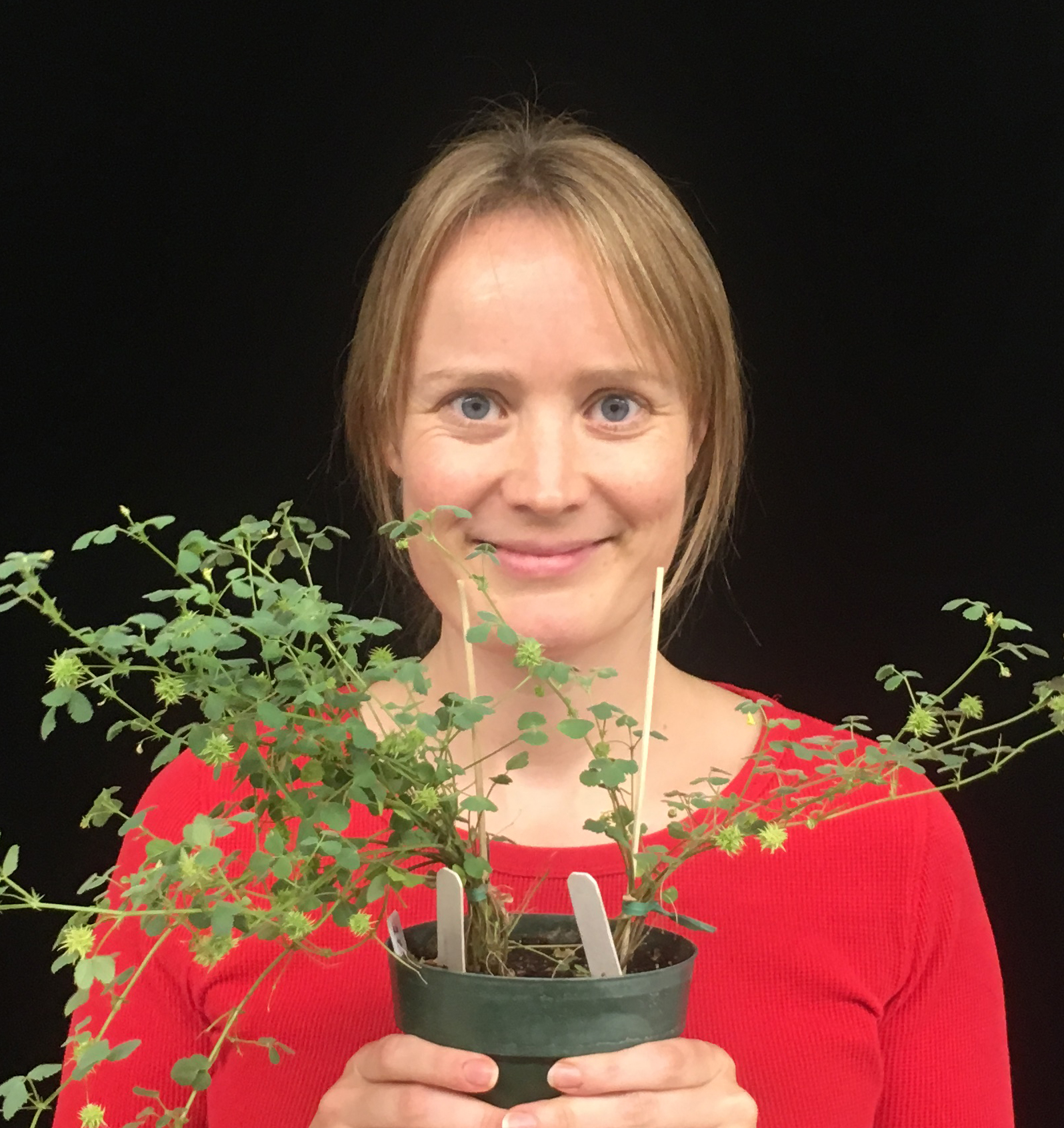- Home
- Early Career Archive
Archive of Previously Featured Postdoctoral Fellows & New Faculty
Featured PostdocsSpring 2020Dr. Purva Karia Dr. Purva Karia is a postdoctoral scientist working with Dr. Sue Rhee and Dr. David Dr. Lauren Erland Dr. Lauren Erland is a Postdoctoral Research & Teaching Fellow in Dr. Susan Dr. Mohamed Samir Youssef Dr. Mohamed Samir Youssef is a research associate working with Prof. Claudio  Stasolla at the University of Manitoba. In 2010, he received his Ph. D.
from Tanta University in Egypt. His Ph.D. thesis focused on
micropropagation and somatic hybridization of Citrullus L. In 2013, he
joined the University of Kafrelsheikh, Egypt as an Assistant Professor
where his research focused on studying the genetic diversity of
economically important plants. Then he joined the lab of Prof. Stasolla
as a postdoctoral fellow in 2015 to study the role of corn phytoglobin
genes in the mitigation of soil flooding. He then joined the
Kafrelsheikh University as an Associate Professor in 2018. Mohamed
joined the lab of Dr. Claudio Stasolla in 2019 as visiting professor to
develop an experimental screen for evaluating drought and salinity
stress in soybean using morpho-physiological parameters, transcriptional
profiling and monitoring enzyme activity. His work improves our
understanding of the molecular mechanisms through which plants respond
to abiotic stresses. In 2022 Mohamed will join Dr. Robert Duncan’s lab
at the University of Manitoba as a research associate to work on a NSERC
Collaborative Research and Development project on High Erucic Acid
Rapeseed improvement. This work will involve genetic characterization
and manipulation of canola plants to determine the genetic control of
key traits.
Stasolla at the University of Manitoba. In 2010, he received his Ph. D.
from Tanta University in Egypt. His Ph.D. thesis focused on
micropropagation and somatic hybridization of Citrullus L. In 2013, he
joined the University of Kafrelsheikh, Egypt as an Assistant Professor
where his research focused on studying the genetic diversity of
economically important plants. Then he joined the lab of Prof. Stasolla
as a postdoctoral fellow in 2015 to study the role of corn phytoglobin
genes in the mitigation of soil flooding. He then joined the
Kafrelsheikh University as an Associate Professor in 2018. Mohamed
joined the lab of Dr. Claudio Stasolla in 2019 as visiting professor to
develop an experimental screen for evaluating drought and salinity
stress in soybean using morpho-physiological parameters, transcriptional
profiling and monitoring enzyme activity. His work improves our
understanding of the molecular mechanisms through which plants respond
to abiotic stresses. In 2022 Mohamed will join Dr. Robert Duncan’s lab
at the University of Manitoba as a research associate to work on a NSERC
Collaborative Research and Development project on High Erucic Acid
Rapeseed improvement. This work will involve genetic characterization
and manipulation of canola plants to determine the genetic control of
key traits.Spring 2021Dr. Kyle Bender Kyle Bender is a postdoctoral scientist working with Cyril Zipfel at the University of Zurich (UZH) in Sw Dr. Philippe Jutras Philippe V. Jutras is an FRQNT postdoctoral fellow at the Fall 2020
Wenlu Bi
Narendra Singh Yadav
Solmaz Irani
Beyond science, Solmaz is a regular volunteer in “Plant Molecular Biology” workshops which are hosted by Dr. Weretilnyk’s lab for high school students. Solmaz has been one of the McCall MacBain postdoctoral fellows since Jan 2020. The program is a hands-on scholarship on teaching and learning by training postdocs with evidence-based teaching methods. Through the program, Solmaz has been paired with Teaching Stream faculty members in the Department of Biology at McMaster University to co-lead a project to explore the long-term impacts of STEM Engagement workshops on high-school students and their teachers. Valentin Joly
| Featured New FacultyFall 2021Dr. Catherine Cullingham  Dr. Catherine Cullingham is an Assistant Professor specializing in plant population genetics in the Department of Biology at Carleton University. Her research uses landscape genetics and population genomics to fill knowledge gaps and develop tools that can be applied to issues in forestry and wildlife management. She completed her PhD at Trent University under the supervision of Dr. Bradley White where she was the first to use landscape genetics to understand the spread of raccoon rabies. From there she completed her postdoctoral work at the University of Alberta working with Drs. Dave Coltman and Janice Cooke examining pine genetics to understand mountain pine beetle spread risk. During her tenure there she confirmed host-expansion of the beetle to jack pine, redefined the spatial complexity of the lodgepole x jack pine hybrid zone, and identified genetic markers potentially associated with mountain pine beetle resilience. Her research lab, the Genomics of Plants, Pests, and Pathogens (GP3) is continuing work on the mountain pine beetle system, and will also be branching out to explore other forest-pathogen systems. She is particularly interested in the relationship between environmental adaptations and pest resilience in forest trees. Dr. Cullingham is a member of the editorial board for the Canadian Journal of Forest Research, and sits on the Terrestrial Mammals Specialist Subcommittee for the Committee on the Status of Endangered Wildlife in Canada. Dr. Mehran Dastmalchi Dr. Mehran Dastmalchi joined McGill University as an Assistant Professor in the Department  of Plant Science in the Fall of 2020. He is setting up a research
program to study metabolism in legume species (Fabaceae), with interest
in pathways producing defence compounds. Dr. Dastmalchi began his
research career in the lab of Dr. Dhaubhadel at Western University/
Agriculture and Agri-Food Canada (2010-2015), with work culminating in
the discovery of a metabolon (enzyme complex) in the isoflavonoid
pathway. From there, he joined Dr. Facchini at the University of Calgary
as a postdoctoral fellow and later as a research assistant (2015-2018),
to investigate morphine biosynthesis in opium poppy. He was part of a
team that found novel biosynthetic and transport genes involved with the
pathway. The discoveries potentiated the modular assembly of natural
and semi-synthetic opioid production in engineered microbes.
Subsequently, he worked with Dr. De Luca at Brock (2019-2020), tackling
specialized metabolism in the medicinal plant Madagascar periwinkle.
This summer, the Dastmalchi lab welcomes its first cohort of students,
including an NSERC-USRA recipient, and later in the Fall, two master’s
students. They will be exploring the utility of specific regulatory and
auxiliary genes in the production of isoflavonoids in legume species. A
genetic and biochemical understanding of plant pathways will hopefully
facilitate metabolic engineering in the plant and heterologous systems.
of Plant Science in the Fall of 2020. He is setting up a research
program to study metabolism in legume species (Fabaceae), with interest
in pathways producing defence compounds. Dr. Dastmalchi began his
research career in the lab of Dr. Dhaubhadel at Western University/
Agriculture and Agri-Food Canada (2010-2015), with work culminating in
the discovery of a metabolon (enzyme complex) in the isoflavonoid
pathway. From there, he joined Dr. Facchini at the University of Calgary
as a postdoctoral fellow and later as a research assistant (2015-2018),
to investigate morphine biosynthesis in opium poppy. He was part of a
team that found novel biosynthetic and transport genes involved with the
pathway. The discoveries potentiated the modular assembly of natural
and semi-synthetic opioid production in engineered microbes.
Subsequently, he worked with Dr. De Luca at Brock (2019-2020), tackling
specialized metabolism in the medicinal plant Madagascar periwinkle.
This summer, the Dastmalchi lab welcomes its first cohort of students,
including an NSERC-USRA recipient, and later in the Fall, two master’s
students. They will be exploring the utility of specific regulatory and
auxiliary genes in the production of isoflavonoids in legume species. A
genetic and biochemical understanding of plant pathways will hopefully
facilitate metabolic engineering in the plant and heterologous systems. Fall 2020Dr. Allyson MacLean, Assistant Professor, University of Ottawa
Dr. Shawkat Ali, Agriculture & Agri-Food Canada, Kentville Research & Development Centre
Dr. Ali completed his Ph. D at the University of British Columbia in 2011 in Molecular Plant Pathology Lab of Dr. Guus Bakkeren, where he worked on plant-microbe interactions, particularly on Ustilago hordei avirulence genes. After that Dr. Ali worked as an NSERC visiting research scientist and FQRNT post-doctoral fellow in the laboratories of Drs. Peter Moffett (University of Sherbrooke, Quebec) and Guy Belair (Agriculture and Agri-Food Canada). Dr. Ali did another post-doctoral fellowship at King Abdullah University of Science and Technology, Saudi Arabia focusing on abiotic and biotic stress tolerance in plants. Shawkat Lab is focusing his research program on large and small fruit diseases in Canada particularly in Atlantic regions. At AAFC his Lab is interested to understand how pathogens are overcoming plant defence and causes disease. Using molecular biology and molecular genetic approach his Lab is working on different aspects to reduce the losses from disease caused by pathogens. His group is also working on fungal endophytes to control plant diseases and to improve plant health that will result in a clean, environment-friendly and sustainable alternative to chemical pesticides. He is also interested in using small RNA to control virus infection in the plant. |

 Ehrhardt at Carnegie Institution in Stanford, California. She is
working on the Sorghum Metabolic Atlas project to unravel the
localization and functions of sorghum metabolic enzymes. She received
her PhD under Dr. Keiko Yoshioka at the University of Toronto in 2021.
Her PhD research focused on the importance of Triphosphate Tunnel
Metalloenzyme 1 (TTM1) localization to the mitochondrial outer membrane
for its function in regulating senescence. She discovered that multiple
phosphorylation events of TTM1 regulate its function in senescence and
protein turnover. Outside of the lab, she enjoys camping, hiking,
baking, and visits to the dog park with her furbaby. Keep in touch with
Dr. Karia on Twitter @prkaria.
Ehrhardt at Carnegie Institution in Stanford, California. She is
working on the Sorghum Metabolic Atlas project to unravel the
localization and functions of sorghum metabolic enzymes. She received
her PhD under Dr. Keiko Yoshioka at the University of Toronto in 2021.
Her PhD research focused on the importance of Triphosphate Tunnel
Metalloenzyme 1 (TTM1) localization to the mitochondrial outer membrane
for its function in regulating senescence. She discovered that multiple
phosphorylation events of TTM1 regulate its function in senescence and
protein turnover. Outside of the lab, she enjoys camping, hiking,
baking, and visits to the dog park with her furbaby. Keep in touch with
Dr. Karia on Twitter @prkaria. Murch’s PlantSMART Lab at UBC Okanagan. Dr. Erland completed her PhD in
2019 in Dr. Praveen Saxena’s lab at the University of Guelph, where she
focused on understanding the roles of the mammalian neurotransmitters
melatonin and serotonin in plants. Her research uses interdisciplinary
approaches such as plant tissue culture, metabolomics, analytical
chemistry, ecological niche modelling, and quantum dot microscopy to
study the role of plant growth regulators in plant perception and
response to changes in their environment. She is particularly interested
in how plant signaling can be applied to understand and predict climate
change resiliency of native Canadian plant species in the Okanagan
Valley and Canada’s Arctic (Inuit Nunangat). Dr. Erland is the Acting
Communications Director and Website Administrator with the CSPB. When
she is not in the lab she enjoys hanging out with her dog Piper and
being outside usually moving very slowly as she finds new plants along
the way! Keep in touch with Dr. Erland on Twitter and Instagram
@plantdrlauren and at www.laurenerland.com.
Murch’s PlantSMART Lab at UBC Okanagan. Dr. Erland completed her PhD in
2019 in Dr. Praveen Saxena’s lab at the University of Guelph, where she
focused on understanding the roles of the mammalian neurotransmitters
melatonin and serotonin in plants. Her research uses interdisciplinary
approaches such as plant tissue culture, metabolomics, analytical
chemistry, ecological niche modelling, and quantum dot microscopy to
study the role of plant growth regulators in plant perception and
response to changes in their environment. She is particularly interested
in how plant signaling can be applied to understand and predict climate
change resiliency of native Canadian plant species in the Okanagan
Valley and Canada’s Arctic (Inuit Nunangat). Dr. Erland is the Acting
Communications Director and Website Administrator with the CSPB. When
she is not in the lab she enjoys hanging out with her dog Piper and
being outside usually moving very slowly as she finds new plants along
the way! Keep in touch with Dr. Erland on Twitter and Instagram
@plantdrlauren and at www.laurenerland.com.

 Wenlu
Bi has been a postdoctoral fellow for the past three years at the
Gosling Research Institute for Plant Preservation (GRIPP) at the
University of Guelph. For her PhD, Wenlu already specialized in plant
cryopreservation and cryotherapy of grapevine with Dr. Qiaochun Wang at
Northwest A&F University in Yangling, China, in 2017. She created
technique to preserve plant germplasm resources and simultaneously
produce virus-free materials in Vitis
plants. Wenlu works as a postdoctoral fellow with Dr. Saxena on
establishing shoot-tip cryopreservation protocols for economically
important crops such as hazelnut and chestnut. She also develops
conservation strategies for several threatened and endangered plant
species, including Hill's thistle, Mingan thistle and Yukon Draba, which
are endemic to Canada. Her primary interest is in protecting and
recovering the wild plant species in their natural habitats in Canada.
She helps to mentor and support graduate students in developing their
experiments.
Wenlu
Bi has been a postdoctoral fellow for the past three years at the
Gosling Research Institute for Plant Preservation (GRIPP) at the
University of Guelph. For her PhD, Wenlu already specialized in plant
cryopreservation and cryotherapy of grapevine with Dr. Qiaochun Wang at
Northwest A&F University in Yangling, China, in 2017. She created
technique to preserve plant germplasm resources and simultaneously
produce virus-free materials in Vitis
plants. Wenlu works as a postdoctoral fellow with Dr. Saxena on
establishing shoot-tip cryopreservation protocols for economically
important crops such as hazelnut and chestnut. She also develops
conservation strategies for several threatened and endangered plant
species, including Hill's thistle, Mingan thistle and Yukon Draba, which
are endemic to Canada. Her primary interest is in protecting and
recovering the wild plant species in their natural habitats in Canada.
She helps to mentor and support graduate students in developing their
experiments. Narendra
Singh Yadav is currently a postdoctoral fellow working with Prof. Igor
Kovalchuk at the University of Lethbridge. His current research project
explores the effects of multigenerational stress exposure in plants. The
stressed lineages are studied for stress resilience via analyzing the
stress phenotype as well as genetic (WGS: Whole genome-sequencing) and
epigenetic (WGBS: whole-genome bisulfite sequencing) variation as
compared to their parallel and parental control. By completing this
project, he will determine if plants are able to transfer stress
modifications to their progeny, and if stress-induced microevolution at
genomic and epigenomic level occurs. Before coming to Canada, he worked
with Profs. Simon Barak and Gideon Grafi as a postdoctoral fellow at the
Jacob Blaustein Institute for Desert Research at Ben-Gurion University
of the Negev, Israel (2013 - 2018). In Israel, he worked in the field of
plant epigenetics to decipher its role in seed dormancy and abiotic
stress tolerance in Arabidopsis
and in regulating transposable elements, particularly during
stress-induced dedifferentiation. He received his Ph.D. (2013) in Plant
Biotechnology from the CSIR-Central Salt and Marine Chemicals Research
Institute in Gujarat, India. During his Ph.D., he carried out research
in the molecular mechanisms of salinity tolerance in extreme halophyte Salicornia brachiata.
His Ph.D. work received international recognition and he was
interviewed by the prestigious science magazine "Scientific American".
Over his career, he has published more than 20 articles in
Narendra
Singh Yadav is currently a postdoctoral fellow working with Prof. Igor
Kovalchuk at the University of Lethbridge. His current research project
explores the effects of multigenerational stress exposure in plants. The
stressed lineages are studied for stress resilience via analyzing the
stress phenotype as well as genetic (WGS: Whole genome-sequencing) and
epigenetic (WGBS: whole-genome bisulfite sequencing) variation as
compared to their parallel and parental control. By completing this
project, he will determine if plants are able to transfer stress
modifications to their progeny, and if stress-induced microevolution at
genomic and epigenomic level occurs. Before coming to Canada, he worked
with Profs. Simon Barak and Gideon Grafi as a postdoctoral fellow at the
Jacob Blaustein Institute for Desert Research at Ben-Gurion University
of the Negev, Israel (2013 - 2018). In Israel, he worked in the field of
plant epigenetics to decipher its role in seed dormancy and abiotic
stress tolerance in Arabidopsis
and in regulating transposable elements, particularly during
stress-induced dedifferentiation. He received his Ph.D. (2013) in Plant
Biotechnology from the CSIR-Central Salt and Marine Chemicals Research
Institute in Gujarat, India. During his Ph.D., he carried out research
in the molecular mechanisms of salinity tolerance in extreme halophyte Salicornia brachiata.
His Ph.D. work received international recognition and he was
interviewed by the prestigious science magazine "Scientific American".
Over his career, he has published more than 20 articles in Solmaz Irani is a postdoctoral fellow working with Dr. Elizabeth Weretilnyk at McMaster University.
Solmaz Irani is a postdoctoral fellow working with Dr. Elizabeth Weretilnyk at McMaster University. Dr. Valentin Joly is a postdoctoral fellow working with Dr. Yannick Jacob at Yale University. While he
Dr. Valentin Joly is a postdoctoral fellow working with Dr. Yannick Jacob at Yale University. While he Allyson
MacLean has recently joined the University of Ottawa as an Assistant
Professor where her research is focused on a study of the molecular
interactions that occur between plants and microbes within the context
of both beneficial and pathogenic associations. Allyson earned her PhD
from McMaster University under the mentorship of Turlough Finan for her
research into the nitrogen-fixing legume symbiont Sinorhizobium meliloti.
As a recipient of a Marie Curie International post-doctoral fellowship,
Allyson joined the lab of Saskia Hogenhout at the John Innes Centre in
Norwich, England, to examine the role of effector proteins in the plant
pathogen phytoplasma, identifying a novel bacterial protein that hijacks
floral development in infected plants. Intrigued by the idea of
investigating the role of microbial effector proteins in a beneficial
symbiosis, Allyson next joined the lab of Maria Harrison at the Boyce
Thompson Institute for Plant Research as a PDF prior to accepting the
opportunity to lead her own lab at uOttawa. The MacLean lab presently
is engaged in research relevant to understanding how plant immunity is
suppressed during mycorrhizal symbiosis, and characterizing the role of
fungal proteins in mediating root colonization. Allyson is also excited
to start a new research program to identify both microbial and host
proteins critical towards the establishment of clubroot disease in
canola, in collaboration with Chris Todd and colleagues at the
University of Saskatchewan.
Allyson
MacLean has recently joined the University of Ottawa as an Assistant
Professor where her research is focused on a study of the molecular
interactions that occur between plants and microbes within the context
of both beneficial and pathogenic associations. Allyson earned her PhD
from McMaster University under the mentorship of Turlough Finan for her
research into the nitrogen-fixing legume symbiont Sinorhizobium meliloti.
As a recipient of a Marie Curie International post-doctoral fellowship,
Allyson joined the lab of Saskia Hogenhout at the John Innes Centre in
Norwich, England, to examine the role of effector proteins in the plant
pathogen phytoplasma, identifying a novel bacterial protein that hijacks
floral development in infected plants. Intrigued by the idea of
investigating the role of microbial effector proteins in a beneficial
symbiosis, Allyson next joined the lab of Maria Harrison at the Boyce
Thompson Institute for Plant Research as a PDF prior to accepting the
opportunity to lead her own lab at uOttawa. The MacLean lab presently
is engaged in research relevant to understanding how plant immunity is
suppressed during mycorrhizal symbiosis, and characterizing the role of
fungal proteins in mediating root colonization. Allyson is also excited
to start a new research program to identify both microbial and host
proteins critical towards the establishment of clubroot disease in
canola, in collaboration with Chris Todd and colleagues at the
University of Saskatchewan. Shawkat joined Agriculture & Agri-Food Canada (AAFC) as a Research Scientist recently.
Shawkat joined Agriculture & Agri-Food Canada (AAFC) as a Research Scientist recently.
